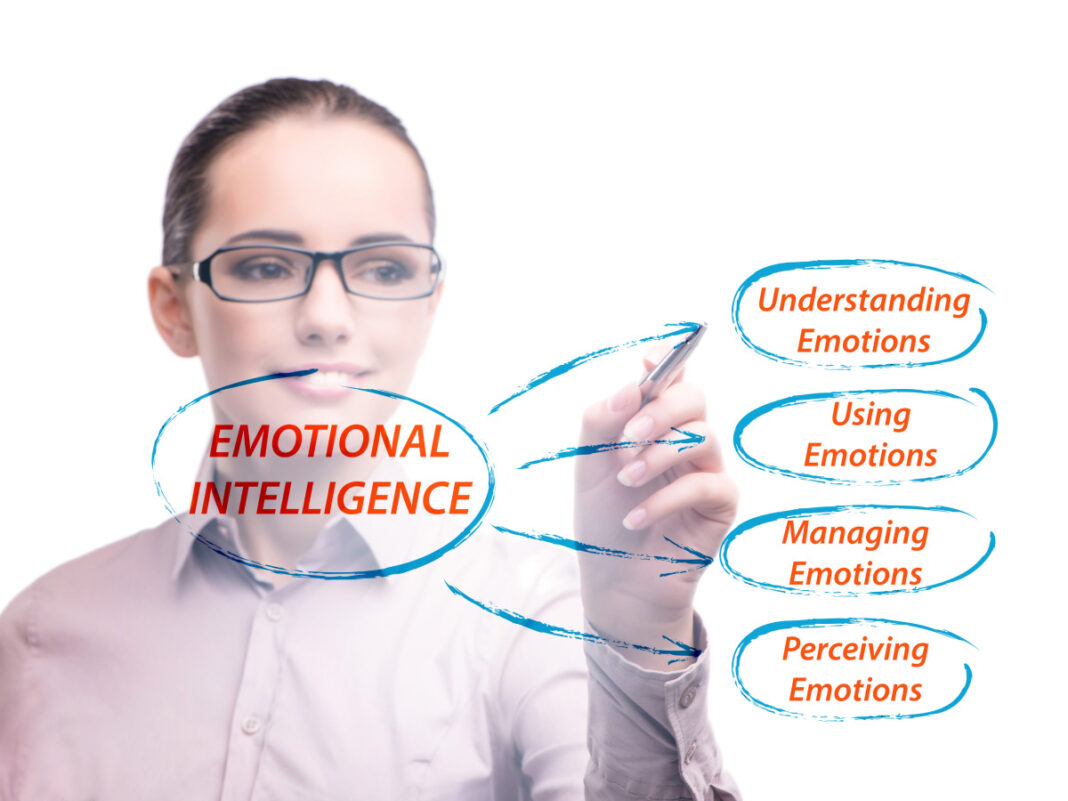Success is not just determined by intellectual ability or technical skills. An often overlooked but crucial component is emotional intelligence (EQ)—the ability to understand, use, and manage emotions effectively. Emotional intelligence enhances our relationships, helps us navigate social complexities, and boosts our overall well-being.
What Is Emotional Intelligence?
Emotional intelligence refers to the ability to recognize and manage our own emotions while also understanding and influencing the emotions of others. It’s comprised of five key components:
Self-Awareness
Recognizing and understanding our own emotions, strengths, weaknesses, and values. By being mindful of our thoughts and emotions, we can make better decisions and foster personal growth.
Self-Regulation
Managing our emotions in healthy ways, controlling impulsive feelings, and adapting to changing circumstances. This means controlling impulses and thinking before acting, allowing for thoughtful responses rather than reactive ones.
Motivation
Developing emotions to pursue personal goals with energy and persistence. It’s about using emotions to overcome obstacles and stay committed even when faced with challenges.
Empathy
Understanding and sharing the feelings of others. By practicing empathy and observing others’ emotions, we build stronger connections and improve our interpersonal relationships.
Social Skills
Managing relationships effectively, communicating clearly, and inspiring others. Those with high EQ excel at building networks and managing conflicts, essential skills in both personal and professional settings.
The Importance of Emotional Intelligence
While IQ can open doors, EQ determines how successful we are once we’re inside. High emotional intelligence is linked to:
Better Mental Health
Individuals with high EQ handle stress effectively and are less likely to experience anxiety and depression.
Improved Relationships
By fostering deeper connections and communicating effectively, emotionally intelligent people have more satisfying personal relationships.
Professional Success
Employers value EQ because employees who navigate social complexities and lead teams contribute positively to the workplace.
Leadership Abilities
Leaders with high EQ build trust and transparency, inspiring and motivating their teams effectively.
Building Better Personal Relationships
Emotional intelligence is critical in nurturing and maintaining personal relationships. By being self-aware and empathetic, we can:
Enhance Communication
Understanding your partner’s emotions and responding appropriately leads to fewer misunderstandings.
Resolve Conflicts
High EQ allows us to approach disagreements calmly, focusing on solutions rather than problems.
Strengthen Bonds
By showing genuine interest and empathy, we foster deeper connections with friends and family.
Enhancing Social Relationships
In social and professional settings, emotional intelligence helps us:
Read Social Cues
By observing non-verbal signals, we can better understand others’ feelings and respond appropriately.
Build Effective Teams
Emotionally intelligent individuals excel at collaboration and conflict resolution, which are essential for team success.
Influence and Lead
High EQ enables us to inspire and motivate others, fostering an environment of trust and productivity.
Developing Your Emotional Intelligence
Emotional intelligence isn’t fixed—it’s a skill you can develop. There are some strategies that enhance EQ levels.
Practice Mindfulness
Engaging in mindfulness activities like meditation or journaling helps increase self-awareness. This practice allows you to recognize your emotions and thought patterns.
Seek Feedback
Ask friends, family, or colleagues for honest feedback to gain insights into your behavior and identify areas for improvement.
Develop Empathy
Place yourself in others’ shoes and understand their perspectives. Active listening and engaging in conversations without judgment can enhance this skill.
Improve Communication Skills
Practice expressing your thoughts clearly and respectfully. Be aware of non-verbal cues and strive for open, honest dialogue.
Manage Stress
Learn stress-reduction techniques to remain calm under pressure. This could include deep-breathing exercises, physical activity, or mindfulness practices.
The Journey Towards Higher EQ
Improving the levels of emotional intelligence is a consistent project that requires patience and dedication. By committing to personal growth, you can build stronger relationships with yourself and others. The benefits extend beyond personal satisfaction—they impact every facet of life, from personal happiness to professional success.
Embrace the opportunity to understand and manage your emotions. As you enhance your emotional intelligence, you’ll find yourself navigating life’s challenges with confidence and building more meaningful connections along the way.


